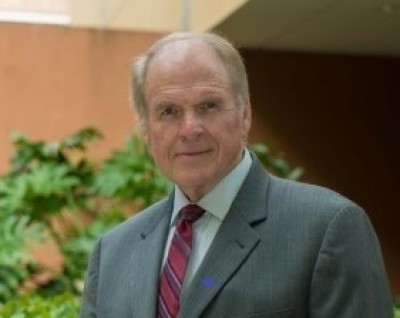Re-imaging America: Prophecy of people group against people group (pt 2)
The old man’s eyes suddenly dripped tears.
It wasn’t droplets drawn by pain or fear, but joy. He was looking at an ultrasound of the baby growing in his granddaughter’s womb.
The baby was only in its fourth month, but already life was there, flourishing with vitality and promise.

The granddad wondered: What will this human being look like when gestation has done its work and the child is born?
The same question can be asked regarding our society and nation.
A new America has been in an intense gestational period since the 1960s. Based on Jesus Christ’s description in Matthew 24 of a “birth pangs” era that would at some point in time kick at the womb of history, one might think the birth is at hand.
On a certain day Jesus walked with some of His followers alongside the great Jerusalem Temple, across Kidron, and up the Mount of Olives. As they scanned the Temple complex from a perch up-slope His followers commented on the size of its stones. Jesus shocked them by prophesying that a day would come when not one of those stones would be left upon another.
They wanted to know: What will be the sign of this, and what will it look like, and when will it happen?
Among the things Jesus told them, one has a special ring for our day. “Nation will rise against nation,” He said. (Matthew 24:7) “Nation” in the original is the Greek word, ethnos, from which we get “ethnic.”
When God views “nations” He doesn’t see geo-political units, but people-groups. In the biblical view, nations are human communities, not monarchs, politicians, documents, armies, or mighty marble buildings and the institutions they house. (See also Acts 17:26-27)
It is easy to build a stable society on the homogenous principle. The greater challenge is to establish a firm nation on a multiplicity of races. Yet love reaches its highest levels when people learn to love those unlike them. Therefore, the Lord instructed Israel through Moses to receive the “strangers” who sought to live among them and share the bounty that would come through walking and working in unity according to God’s design.
However, in Matthew 24, the Lord of time and history is prophesying intensified conflict between various races as the biblical perspective and consensus fade.
It is hard work to maintain unity in a nation of ethnic multiplicity. There must be some point of coherence, like a shared commitment to inviolable principles and values. But there are those who, like Apollyon—the “destroyer” they serve—want to use this very variety to divide and hasten fragmentation.
One must resist the temptation to claim that our time is the only one Jesus had in mind above all other historic ages. However, for America His prophecy of people group against people group is intensifying.
For example, there has been a drive to exterminate the Jews in every generation. What is stunning in the present age is the renewal of attempts to promote hatred, if not outright genocide of the Jews.
Further, extremists on both sides of the socio-cultural divide are ready with ideological torch in hand to ignite the old prejudices and conflicts that once set the nation itself ablaze. One of the firebrands presently generating heat is critical race theory.
That day on Olivet Jesus told His disciples that the times ahead, both in their near future and the world’s long-term outlook would be “perilous.” (Matthew 24:15) There would be a burning hatred against Christ’s followers, wars and rumors of wars, false prophets, and rampant antinomianism—the loathing of law and the lawlessness that inevitably follows. Many in the church would “fall away” from sound biblical doctrine as they embraced the new values shaping the profile of the nation.
As Mark Twain or some other sage put it: History may not repeat itself, but it does rhyme.
And so, the schema Jesus described that day on the Mount of Olives has appeared in many historical ages. However, our times are different. People can propel others to violence on a large scale through the internet. Global travel makes it possible to spread destruction. Rumor can sweep multitudes into tragic actions, stirred by the imagery propagated by incendiary media.
Tribulation” will intensify. Again, the Greek word provides broader insight. Thlipsis was the hefty stone placed in the trough of a round structure in which olives of grapes had been poured. A long rod went through the thlipsis-stone, attached at the other end to a donkey or horse, who circled the pit, causing the thlipsis to roll over, squeeze and crush out the oil or juice.
Thus, the world Jesus describes in the Olivet Discourse is one of intensifying pressure.
These are merely the “birth pangs,” He says.
So, back to the question: What will the “baby” look like when it is fully formed?
Roger Cohen, in a New York Times piece imagined how someone from our times might look back and try to describe our period: “It was a time of unraveling... aggression... a time of breakup... a time of weakness... a time of hatred... of fever... a time of disorientation. No one connected the dots... until it was too late, and people could see the Great Unraveling for what it was and what it had wrought.”
Maybe it’s not too late, but we must awaken and see the forces trying to take us apart. There is indeed hope midst the grim situation described here. We examine that in Part 3.
Wallace B. Henley’s fifty-year career has spanned newspaper journalism, government in both White House and Congress, the church, and academia. He is author or co-author of more than 20 books. He is a teaching pastor at Grace Church, the Woodlands, Texas.
For media inquiries, contact: ChristianPost@pinkston.co





















